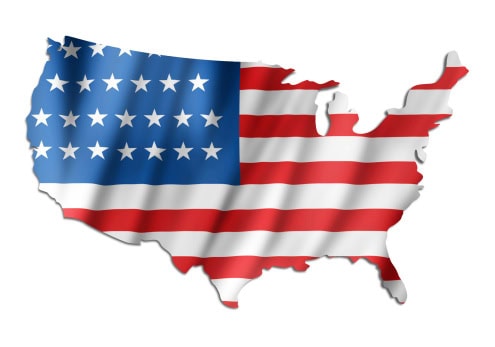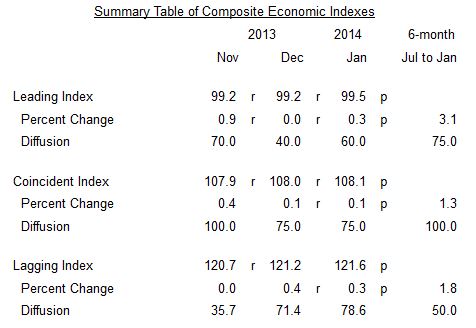The business climate in the US rose in January, with the Conference Board’s January Leading Economic Index (LEI) registering a 0.3% increase to 99.5, after December saw no change and a 0.9% rise in November. (The LEI in 2004 was 100).
Ataman Ozyildirim, Economist at The Conference Board, said:
“The U.S. Leading Economic Index continues to fluctuate on a monthly basis, but the six-month average growth rate has been relatively stable in recent months, which suggests that the economy will remain resilient in the first half of 2014 and underlying economic conditions should continue to improve.”
He added:
“Correspondingly, the U.S. Coincident Economic Index, which measures current conditions, has continued rising steadily.”
(Source: The Conference Board)
January Leading Economic Index reflects moderate growth
The Conference Board’s chief economist, Ken Goldstein commented that the rise in the Leading Economic Index reflects a moderately growing economy, which has been held back somewhat by exceptionally severe winter weather across most of the nation.
Goldstein added “If the economy is going to move on to a faster track in 2014 compared to last year, consumer demand and especially investment will need to pick up significantly from their current trends.”
The Coincident Economic Index for the United States rose 0.1 in January, 2014 to 108.1, after increasing 0.1 in December and 0.4 the month before.
The Lagging Economic Index for the United States rose to 121.6 in January (a 0.3 increase), after rising 0.4 in December and staying the same in November.
Severe weather in January and parts of February have had a negative impact on several sectors of the US economy. Home builder confidence in February fell ten points to 46, the lowest level in nine months. Builders expressed growing pessimism regarding sales trends.
Bad weather also pushed US January retail sales down, which posted a fall compared to December. Overall, consumers spent less on clothing, automobiles and eating out last month. Inclement weather kept millions of people either inside their homes or very close to home.


